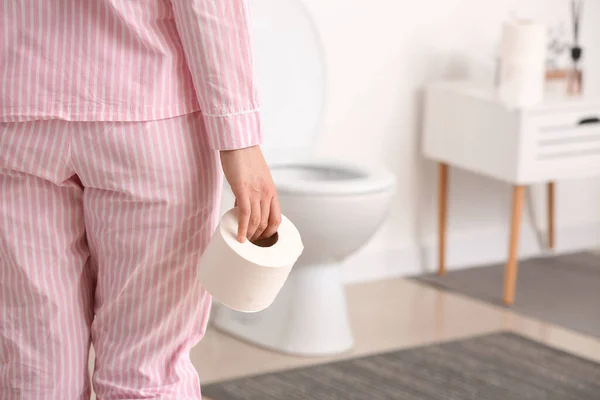Understanding your body’s signals is a cornerstone of good health, but there’s one cue people often hesitate to discuss—your poop schedule. The frequency and timing of your bowel movements aren’t just routine bodily functions; they’re direct insights into your digestive system’s well-being, overall health, and even your emotional state. While talking about such a personal matter might feel uncomfortable, being attentive to when and how you go can reveal early signs of health changes before they become bigger concerns. Whether you’re someone who never strays from their morning ritual or you’ve noticed troubling shifts in your own pattern, knowing what’s normal, what could be a red flag, and how to maintain healthy regularity is vital.

Here’s what your poop schedule is trying to say about your health—and the most practical ways to get your gut back on track.
How Many Bowel Movements Per Day Is Normal?
Nearly everyone wonders what’s “normal” when it comes to bowel habits, and the answer often depends on your unique body. For most people, having anywhere from three bowel movements per day to three per week is considered within the healthy range. Surveys show that nearly half of people report pooping once a day, with another significant portion going two times a day. The emphasis is less about the exact number and more about consistency: If your routine suddenly changes, that may be your body’s way of alerting you to something amiss. For example, a healthy stool generally looks like a sausage—either smooth or with minor cracks, signaling optimal gut function.
However, constipation, defined as fewer than three bowel movements per week, and loose stools occurring more than four times daily, may be warning flags that require attention. It’s not just anecdotal—scientific studies reveal that regularity, when combined with comfortable stool passage, is linked to better metabolic and even mental health~.
What Your Poop Schedule Signals About Your Gut Health
Your gut doesn’t whisper; it speaks clearly through your poop schedule. Recent analyses of over a thousand healthy adults demonstrated that those comfortably going once or twice daily—what researchers dubbed the “Goldilocks zone”—typically have thriving gut microbiomes and lower risk for metabolic and liver issues. When waste sits in the colon for prolonged periods, the gut bacteria run out of dietary fiber to ferment and shift to fermenting proteins, often producing metabolites that strain organs like the kidneys. Conversely, very frequent bowel movements associated with diarrhea can signify a gut environment more prone to inflammation and suboptimal nutrient absorption.
Anecdotes abound: One office worker shared that his schedule shifted dramatically during a particularly stressful project at work, only to discover later that his change in gut rhythm was his body’s early warning system for burnout. When he returned to more restful habits and a balanced diet, his regular pattern and energy returned, reinforcing that digestion and overall wellness are deeply connected.
Your Poop Schedule Changes With Age
Children may seem to poop on demand, but as people grow older, their routines often shift. In youth, a robust metabolism, high activity levels, and responsive digestive tracts encourage regular bowel movements. With age, a constellation of factors—reduced activity, lower fiber intake, medications, decreased muscle tone in the gut and abdomen—contribute to less frequent stool passage and a greater tendency toward constipation, especially after age 65.
Medications commonly prescribed in older adulthood, like certain painkillers, antidepressants, calcium channel blockers, or iron supplements, further slow gut motility and can complicate efforts to maintain consistency. Dr. Gina Sam, a renowned gastroenterologist, aptly remarks, “Normal is what you say it is,” highlighting that consistency over time, not rigid adherence to a numerical average, defines gut health.
Your Pelvic Floor Can Affect Your Bowel Movements
It’s easy to overlook the pelvic floor, but these muscles are crucial for seamless digestion. When healthy, the pelvic floor relaxes and contracts at just the right moments to allow for comfortable bowel movements. Yet, if these muscles are weak or too tight—a common issue following childbirth, abdominal surgery, or prolonged constipation—digestion can be thrown off.
Pelvic floor dysfunction goes beyond constipation. It may also cause urgent, sudden needs to go, incomplete emptying, or leakage, known medically as “faecal incontinence.” A physical therapist specializing in the pelvic floor can identify muscle patterns driving these problems and prescribe exercises, biofeedback, or lifestyle tweaks for restorative results. This therapeutic approach is especially valuable after stressful life events or surgeries and is often overlooked in primary care checkups.
Simple Ways to Get Your Gut Back on Track
If your system has lost its rhythm, a few concrete changes can restore harmony and regularity:
- Eat more fiber: Aim for whole grains, vegetables, fruits, nuts, beans, and legumes to feed your healthy gut microbes and keep stools soft and regular.
- Hydrate: Drinking enough water each day—usually at least eight 8-ounce glasses—prevents constipation and supports smooth digestion.
- Exercise consistently: Physical movement stimulates the colon’s natural contractions, helping things move along. Simply walking each day can make a substantial difference.
- Include probiotics: Foods like yogurt, kefir, and fermented vegetables introduce beneficial bacteria to your gut, fostering balance and aiding regularity.
- Manage stress: Chronic stress or anxiety disrupts digestion, so mind-body techniques such as meditation, journaling, or counseling can be surprisingly effective.
- Be mindful of medication side effects: Always discuss with healthcare providers if new medications disrupt your bowel movements.
- Perfect your toilet habits: Don’t ignore the urge to go, and aim for a proper position—knees slightly higher than hips can make passage easier.
Keeping a food diary is a smart strategy, particularly for identifying personal dietary triggers or intolerances.
The Bottom Line on Bowel Movements
A regular poop schedule isn’t just about comfort or convenience; it’s a key indicator of systemic health, reflecting everything from dietary patterns to mental well-being and even cardiovascular risk. Your routine may evolve over time, influenced by the foods you eat, activity level, stress, medication, and sleep. By paying close attention to what feels normal for you and adjusting habits as needed, you can harness the body’s natural cues to stay healthy, energetic, and comfortable. When persistent changes or new symptoms arise—such as blood in stool, sustained constipation or diarrhea, or dramatic shifts—contact a clinician. Listening to your gut is more than an idiom; it is medicine’s oldest, most reliable wisdom.
Also Read | Herbal Tea Cured Her Insomnia When Nothing Else Worked










